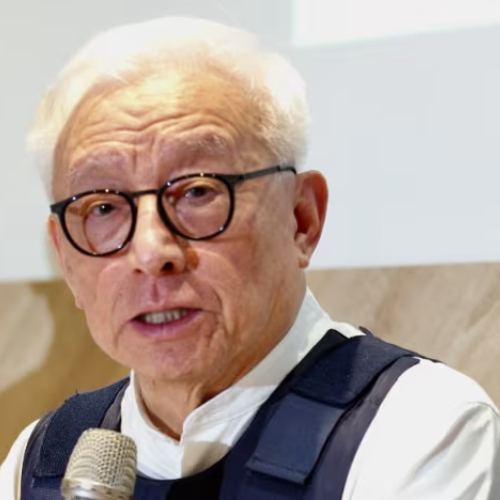Robert Tsao, one of Taiwan’s wealthiest businessmen and the retired founder of the major semiconductor company United Microelectronics Corporation (UMC), announced a groundbreaking move: he is suing two top Chinese officials over sanctions placed on him by the Chinese government. These sanctions were imposed as a punishment for his strong support of Taiwan’s independence, which China sees as a direct threat to its own interests.
China claims Taiwan as part of its territory, though Taiwan operates as an independent, self-governing region with its own democratic government. Recently, Tsao publicly pledged millions of dollars to support two Taiwanese programs aimed at training civilians to protect Taiwan in case of military threats from China. In response, China’s Taiwan Affairs Office imposed sanctions on Tsao, accusing him of supporting separatist activities and criminal acts. Tsao, however, argues that he is simply supporting the right of Taiwanese people to defend themselves and freely express their political beliefs.
Robert Tsao has now announced that he will file a lawsuit in Taiwan against two top Chinese officials: Song Tao, the head of the Taiwan Affairs Office, and the office’s spokesperson, Chen Binhua. Although Taiwan’s courts do not have jurisdiction over Chinese officials, Tsao believes that the lawsuit will show Beijing that Taiwan will not bow to intimidation.
Why China Sanctioned Robert Tsao
Robert Tsao has been a major supporter of Taiwan’s right to self-defense. As China’s government has increased its military and political pressure on Taiwan, Tsao has stepped forward to offer support. Recently, he pledged millions of dollars to two programs dedicated to training Taiwan’s civilians for self-defense. One of these programs, known as the Black Bear Academy, teaches ordinary Taiwanese citizens defensive skills and how to respond in case of a military attack or invasion.
The Black Bear Academy is controversial in China because it promotes civilian readiness, which Beijing sees as a challenge to its power over Taiwan. China claims that supporting such initiatives encourages separatism, or the idea that Taiwan should completely break away from China. Chinese officials have argued that these actions could disrupt peace and safety between the two sides of the Taiwan Strait. Because of this, China’s Taiwan Affairs Office imposed sanctions on Tsao last month, calling him a threat to stability and accusing him of illegal, pro-independence actions.
Despite these accusations, Tsao has stood firm in his support for Taiwan. He argues that his contributions are intended to help Taiwan protect itself and preserve the democratic values that allow Taiwanese people to freely express their political views. Tsao has stated that China’s sanctions are meant to scare people in Taiwan from supporting independence and self-defense initiatives. He is now turning to legal action to push back against these threats.
Tsao’s Legal Strategy and Challenges Ahead
At a press conference, Robert Tsao’s lawyer Cheng Wen-lung explained the reasoning behind the lawsuit. Although the Taiwan court system has no authority over China, Tsao wants to make a bold statement to the world about Beijing’s intimidation tactics. Tsao’s legal team is aware that the lawsuit may never reach Song Tao or Chen Binhua, who are unlikely to ever visit Taiwan. However, they believe that this legal step will demonstrate Taiwan’s determination to stand up for its rights and values.
China’s Triton Island Spybase Sends Veiled Warning to Vietnam and Taiwan
Additionally, Robert Tsao’s team is considering taking their case to a United States court under the Alien Tort Claims Act (ATCA). The ATCA is a law that allows foreign citizens to bring cases in the United States if they believe their human rights were violated under international law. By suing in a U.S. court, Tsao hopes to draw more international attention to his case and China’s actions. However, such a lawsuit would also face many challenges, including the difficulty of proving that Chinese sanctions violate international law.
Meanwhile, China’s Taiwan Affairs Office, the very organization Robert Tsao is suing, has not responded to any requests for comment on the lawsuit. While Chinese officials have not publicly acknowledged Tsao’s announcement, Beijing continues to pressure Taiwan through military drills and warnings. Just last month, China’s military held war games around Taiwan, claiming they were meant to deter any actions that could lead to Taiwan’s separation from China.
UMC, the semiconductor company that Robert Tsao founded, has distanced itself from the businessman’s political activities, stating that Tsao retired from the company more than a decade ago and has no current connection to its operations. Nonetheless, Tsao’s actions highlight the ongoing conflict between China’s government and supporters of Taiwan’s independence, as well as the risks faced by individuals like Tsao who take a public stand for Taiwan’s freedom.
By filing this lawsuit, Robert Tsao is not just challenging China’s sanctions against him. He is also sending a message that Taiwan’s citizens, businesses, and leaders are willing to speak out, even if it means standing up to one of the world’s most powerful governments.


